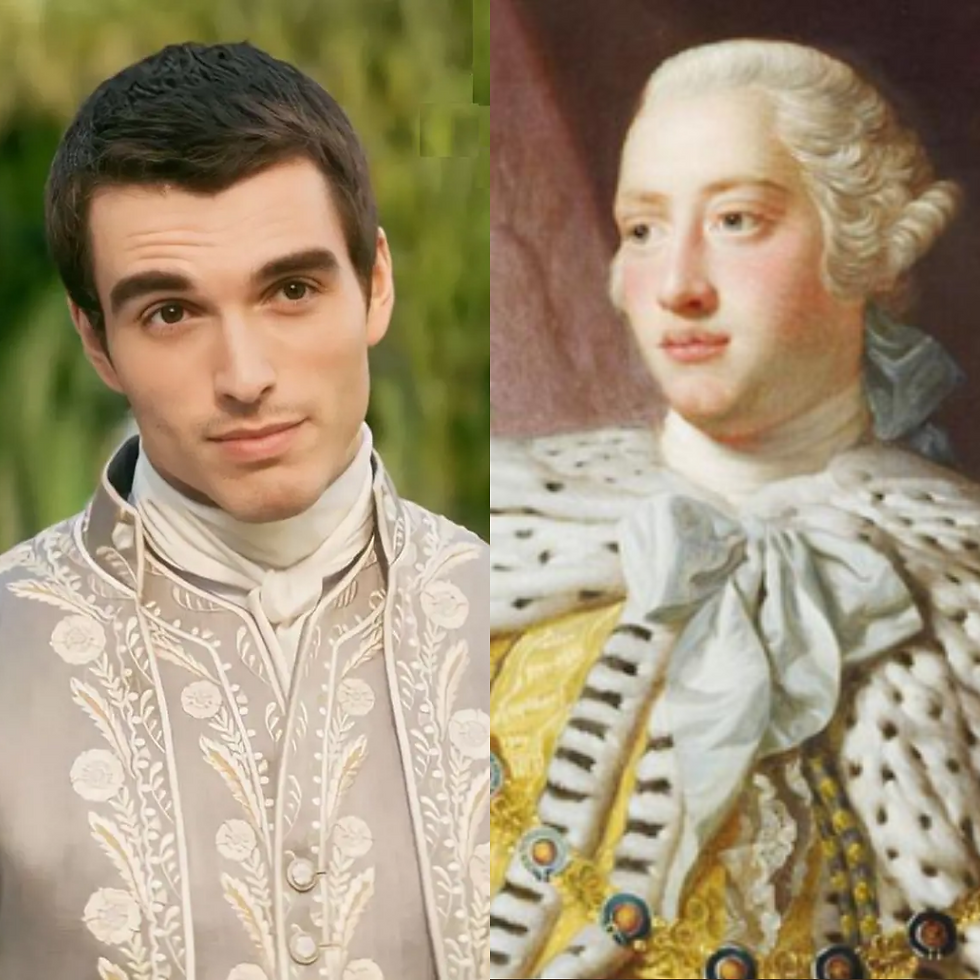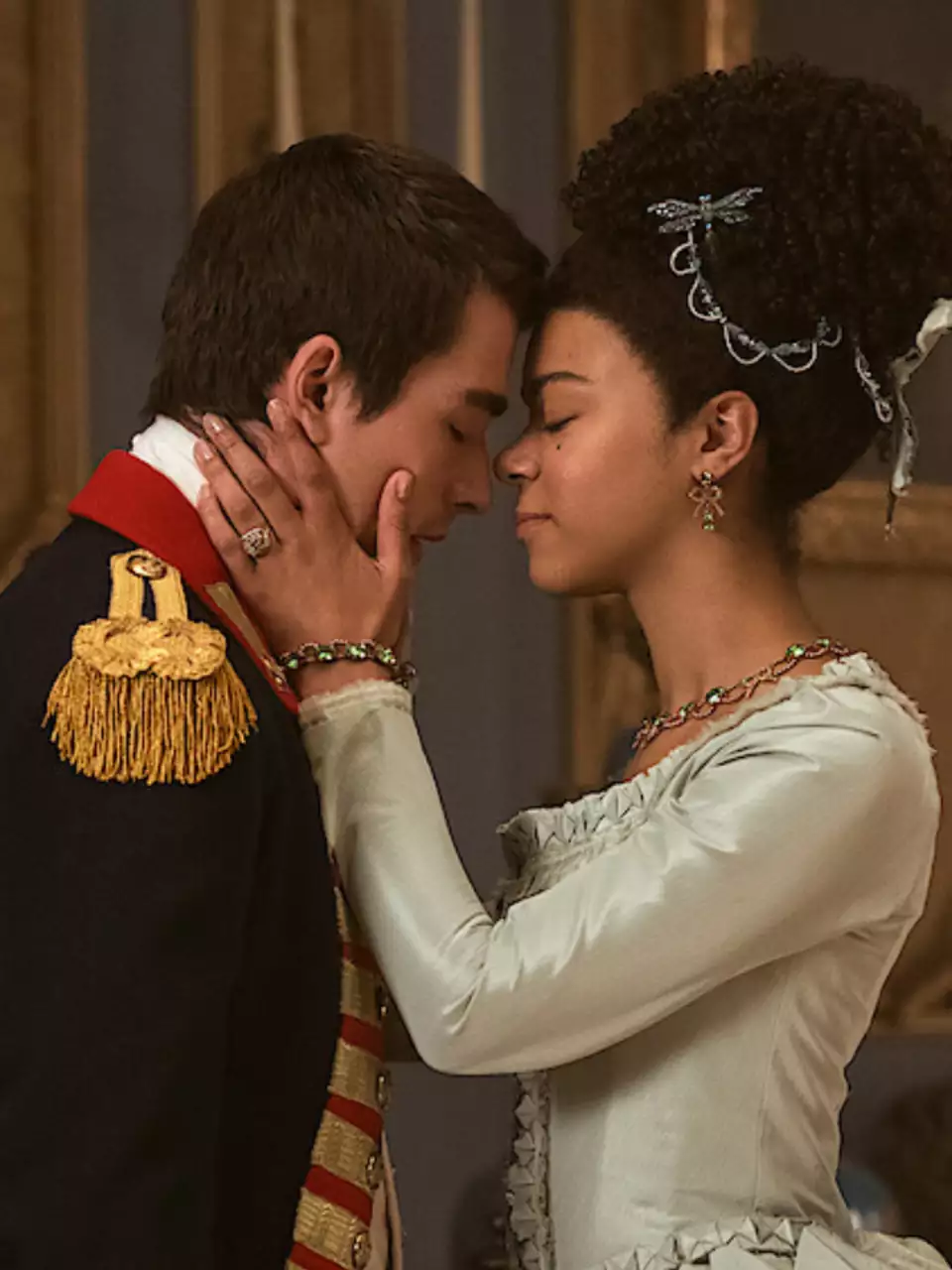My Bridgerton story - Medical depictions in movies
- Jojo talks med

- Sep 16, 2023
- 5 min read

Months ago, I was opportune to watch the first season of Bridgerton with my best friend and I dare say, it was an exciting movie. The cast, the era, the drama, the romance, very intriguing. I’m sure you must have watched it too and if you haven’t, what are you waiting for?
Yeah, it was all fun and entertaining but here’s something I am 80% sure you didn’t do after watching Bridgerton – Did you look into King George’s madness?

King George (played by Corey Mylchreest) had several events during the film where he basically had lost his mind, was speaking gibberish and possibly hallucinating. I also noticed that, at no point during the film was the medical name of his illness defined nor the cause of his declining mental state described.
A/N - if you’d like to counter, let me know in the comments section.
Not to worry, this is what you have JoJo Talks Med for, so without further ado, let’s dive into the madness of King George the Third of Great Britain (1738 – 1820).

Was King George truly mad?
Yes, king George suffered from mental illness starting from a mild case at age 27.
According to a report by the National Institute of Health, King George was considered mentally stable for the majority of his life. His first bout of illness was recorded in 1788, when he was 50 years old. The NIH's research claims that the king experienced hypomania, which then worsened in the fall. He reportedly experienced relapses in 1795, 1801, and 1804. - Esquire
An additional study published in PLOS ONE describes his manic episodes as “agitation, rambling incoherent speech, and episodes of violence and sexual impropriety.” In 1810, King George reportedly fell into a "persisting relapse," where he experienced chronic mania and possible dementia. His condition remained this way until he died at 82 years old. During the final decade of his life, King George was declared mentally unstable, leaving his eldest son, Prince George, to carry out his royal duties. – Esquire
Additionally, George also became blind in the final 10 years of his life due to Cataract.

What was he suffering from?
Several studies have been conducted to understand what the monarch really suffered from due to the fact that during the time of his life, medicine was hardly advanced enough to properly diagnose and treat the king, therefore he was simply called mad!
Diagnosis that has recurred around the years by scientists and historians include Acute Intermittent Porphyria then later on Variegate Porphyria.
Porphyria is a group of liver disorders in which substances called porphyrins build up in the body, negatively affecting the skin or nervous system. It was also debated that he suffered from an unknown psychiatric illness.
Presently, these claims were contested and new research determined that King George actually suffered from bipolar disorder due to the fact that he was showing signs of mania and hypomania.
Mania is a disorder characterized by extreme elevated/ excited moods or energy level and emotions usually with psychosis- hallucinations of things impossible or unrealistic. Hypomania is a milder form of mania that doesn’t involve psychosis.
This was depicted in the film in places such as him seeing a Venus coming to earth while walking around naked in the garden.
He became seriously deranged, sometimes speaking for many hours without pause, causing him to foam at the mouth and his voice to become hoarse. George would frequently repeat himself and write sentences with over 400 words at a time, and his vocabulary became "more complex, creative and colorful", possible symptoms of bipolar disorder. – Wikipedia.
The reality is that the definition of King George’s illness remains uncertain because there is alack of necessary information to make accurate diagnosis has been lost over time.

How was he treated during his illness?
King George was treated with violent methods such as confinement, electrocuting, suffocation and beatings by his lead physician and as displeasing as it seems, this is actually how George’s physicians tried treating him and even worse, his earlier physicians even poisoned him!
His physicians tried and failed to cure him of his insanity with several treatments we would now consider a form of torture. These included applying arsenic-laden powders to the king’s skin to make it burn and blister, starving him and plunging him into freezing cold water. The king was also given emetics to make him vomit and purgatives to give him diarrhea. All these treatments were meant to ‘draw out’ the King’s madness and restore him to health. Unsurprisingly, they didn’t work – Sky history
Francis Willis was his lead physician and owner of a successful asylum back then. Willis believed that the root cause of mental illness was over-excitement. He intended to cure the king by strictly controlling his behavior which is why he resorted to inhumane treatment of the king when he had episodes.
When George ranted and raved and attacked those attending him, Willis ordered the king’s servants to gag him and place him in a straitjacket. He was left that way, thrashing around and making incomprehensible noises until he tired himself out and calmed down. When the king behaved himself, he was rewarded by being allowed to see members of his family. When he misbehaved, it was back into the straitjacket. Even mealtimes became a carrot and stick exercise. When George was bad, he ate mushed-up food with a wooden spoon; when he was good, he was allowed to use cutlery – Sky history.

Were these treatments effective? King George seemed to have recovered for a while by 1789 after considerable time in Willis’ care. This recovery was short lived as he suffered recurring relapses in 1801 and 1804.
In 1810, he suffered a major manic episode that left him permanently insane and he lived the rest of his life as a ghost in his kingdom till he died in 1820.
His treatment is widely debated to consider whether they were effective or it was just coincidental that he was fine for a while because he deteriorated massively in just the space of two decades.

The Bridgerton story put a spin on what was otherwise a royal tragedy and a case of illness during an uncaring, under developed and ill skilled age in medical treatment. The movie showed the importance of support for the sick and unstable and depicted and depicted love triumphing all adversaries in the King’s life but this was hardly the case in reality.

The queen died in 1818 before the king and he did not mourn her because he had no recognition of who she was unlike in the movie were there was such a romantic ending where they were under the bed reliving special memories.

Not to worry though, King George was truly called Farmer George affectionately due to his love for agriculture, he was a very educated man whose support for and promotion of Britain and the arts and sciences during his reign made him amongst the most enlightened and forward-thinking kings in Europe, he also remains the longest living male monarch of Britain with 59 years of reign so not all is dire and sad in his reality!
Interestingly, the madness of King George III remains an undisputed appearance in unexplained medical phenomena in history.

This piece of research leaves me to wonder how many more medical tragedies have been diluted with drama and romance for entertainment thereby leaving little space for understanding the true reality of conditions and eras in medical development.
I would love to hear your thoughts on King George’s life and what you think should have been his treatment?
Thank you for reading, have a great week ahead!










Well articulated.💖
🤭🤭
I loveee thisss😭
Nice write up.❤️